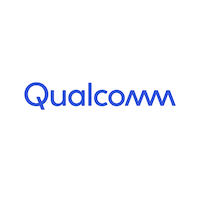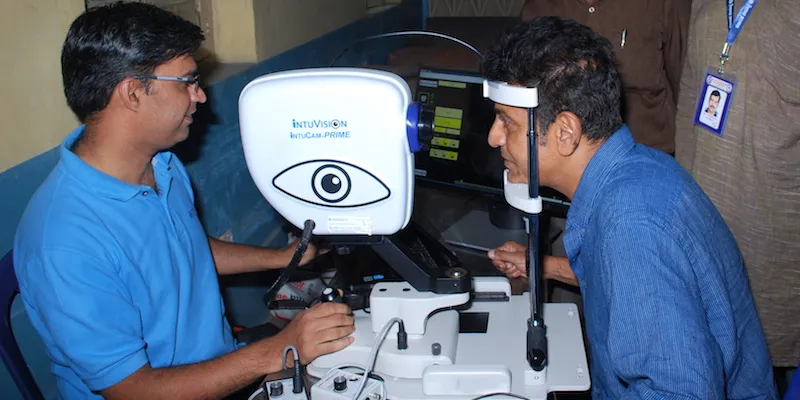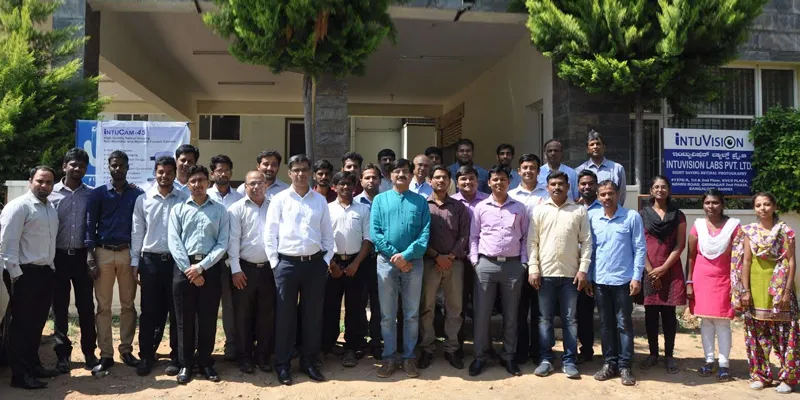
Qualcomm
View Brand PublisherThis startup’s portable retinal imaging cameras are making eye-care easy, accessible and affordable
With a clear goal in sight, this three-year-old startup is indeed living up to its name. Intuvision was founded in 2014 with an aim to build home-grown, affordable and high quality retinal imaging cameras to aid eye-care wellness through a network of partners, ophthalmologists, hospitals, clinics and NGOs.
In three years, they have developed three such cameras. The IntuCam-45 is for general ophthalmologists, IntuCam-45+ is an extensive diagnostic fundus camera for retina specialists and IntuCam-Prime is for clinical use by diabetologists and general physicians. IntuCam-Prime can also be used for eye screening camps as the device is moderately portable.
“All our devices can be operated by interfacing them with a computer or laptop. The doctor or the device operator uses the application software to operate the device, and observes (the findings) on the monitor. There are additional utilities available for patient record management, diagnostic assistance, and report generation. It even has a telemedicine interface,” explains Harinarayanan S (Hari), co-founder, Intuvision, who also heads the startup’s product development function. Hari’s journey in Ophthalmology began during his thesis work which involved developing cameras for imaging the retina of the eye, while he was pursuing his Masters in Technology, in Electronics Design and Technology (CEDT).
They have an interesting product in the early prototyping stage – the IntuCAM-NANO. “We’ve refined our existing series of products and come up with the IntuCAM-NANO. We wanted to make a simple portable handheld screening camera. Our current products are moderately portable -- they are operated on a table and need a computer for operation. By making it a handheld device, we eliminate the need for additional parts such as a device stand, a table and computer,” says Hari.

Anil Chaturvedi, who heads sales and marketing at Intuvision, elaborates on how the startup’s products are in tune with their vision to enable better and affordable eye care.
What makes Intuvision’s cameras exciting for the medical fraternity is that they enable recording of observations and patient history, evidence-based diagnosis, and especially diagnosis of silent killers of vision like Diabetic Retinopathy (DR), Glaucoma and Age-Related Macular Degeneration (AMD).
With vast experience in the field of healthcare, Anil, a former senior anaesthetist at the UK’s National Health Service (NHS), says, “By making our products portable and affordable, ophthalmologists, hospitals and NGOs can now conduct regular eye camps and outreach programmes with ease.” He explains how even today most hospitals consider it risky to transport eye examination equipment because they are expensive. “With the IntuCAM-NANO, we are breaking down these barriers, by bringing down the price factor, making it portable, while maintaining essential quality, thus enabling hospitals, NGOs, and other institutions to conduct eye camps and outreach programmes.”
Intuvision is one of six companies shortlisted for Cycle II of the Qualcomm Design in India - Challenge 2017 (QDI-C 2017). Its IntuCAM-Nano makes use of Qualcomm’s Snapdragon 820-based processors which enables high-quality imaging and automated diagnosis using Machine Learning (ML) algorithms for automated disease detection.
“By integrating ML and Artificial Intelligence (AI) in our products we will be able to assist doctors to make faster and more accurate diagnosis, and help them better manage large eye camps which see attendance in great numbers,” says Hari.
IntuCAM-NANO incorporates optical design to allow for imaging of eyes with smaller pupils. It makes use of infrared light to align the device, focuses and captures the colour image of the retina by making use of a flash of white light, similar to a mobile phone flash. The optics design allows for capturing images of retinas with higher megapixels, to enhance the minute details in the retina and also allow for more accurate detection by ML algorithms.
The team is looking at launching the product in the market by August 2018. According to Raghunath G (Raghu), a serial entrepreneur and an angel investor for Intuvision in its early days, who now heads the startup’s Finance and Strategy functions, “We want the IntuCAM-NANO to become indispensable. for ophthalmologists, as a stethoscope is for physicians.”
The team is looking at making use of Qualcomm chipsets in some of their other products. Hari says, “The Qualcomm chipsets and software come with libraries that simplify much of our development effort. They add substantial value to our products, in terms of onboard display, processing, etc., and also saves costs for the customer by avoiding the need for additional computers.”
In 2013, Anil put forth to Raghu a business idea of running eye screening camps for hospital and NGOs. While Raghu and Anil decided to action the idea, they realized that the business was not viable because of the pricing of equipment, which were largely imported. That’s when the two saw the market opportunity to build a quality affordable camera and roped in Hari as the co-founder.
“The initial challenges were mostly related to optics design. This was primarily due to the lack of easy availability of optics designers for imaging systems in India. And, they are also expensive talent resources for a startup. That’s when we engaged several overseas consultants, but it was not viable to execute the development overseas.” So, the startup decided to develop the required competency in-house and through experimentation. It was a tough time, yet the team came together to overcome critical challenges related to refining optics, optical stimulation and product design.
Once the product was at hand, the next big challenge was what many niche startups face – acquiring the first few customers. Anil says, “We were not the only early entrants and there were other startups offering affordable products. There were reliability concerns as we were a startup, even though our product was much better than what was available in the market. Once we were able to crack the code and get to our early adopters, we were able to enhance our sales based on references.”

The startup has over 150 installations of its products in the country and has even exported 10 units. The team is now looking to expand sales globally. Anil says, “Our long-term plans include expanding our product portfolio to include other imaging products like otoscopes, dermatoscopes, and meet the needs of the medical fraternity for quality and affordable products.”







